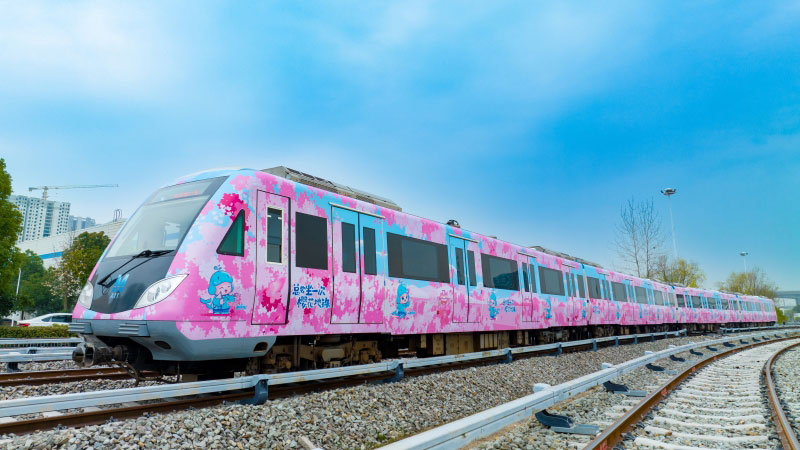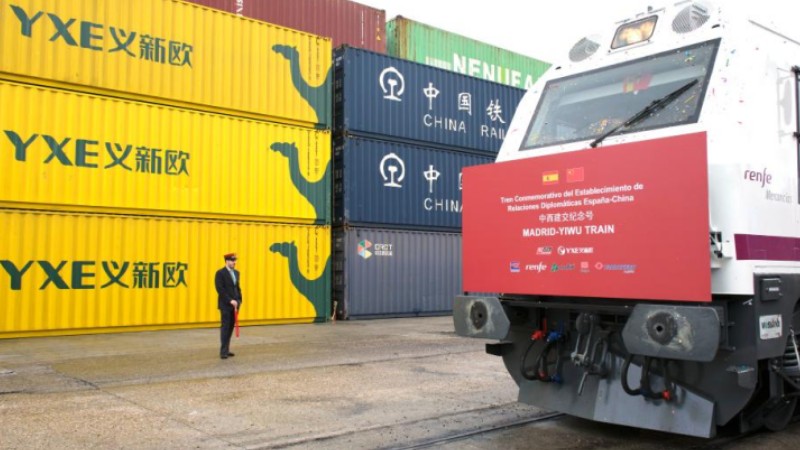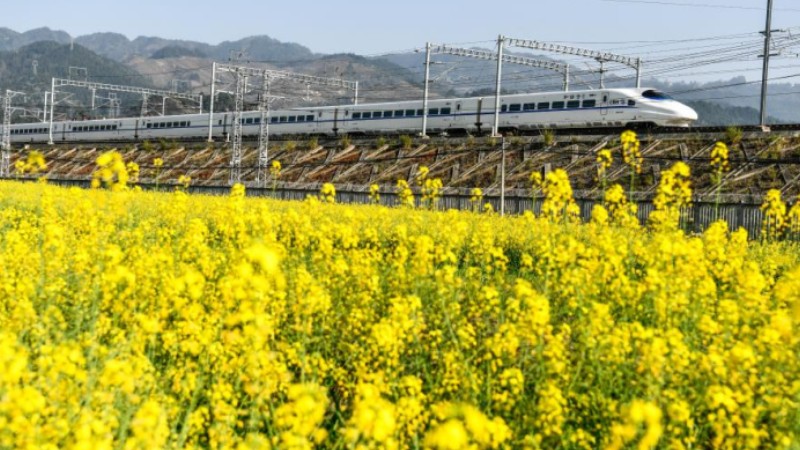What China's high-standard opening up brings to the world

-- Amid geopolitical conflicts, energy and food security crises, and the pandemic, globalization is now suffering various setbacks. The global openness index keeps declining, showed the World Openness Report 2022. However, China's commitment to high-standard opening up has helped resist such headwinds.
-- Some of the most important aspects of China's high-standard opening up include sharing opportunities, developing together and improving people's livelihoods, all with an ultimate aim to build a community with a shared future for mankind.
-- Under the policy of high-standard opening up, China has issued a series of measures to level the playing field, so that foreign companies can enjoy better business environment in the country.
BEIJING, March 12 (Xinhua) -- In 1978, one of China's most significant basic policies, reform and opening up, was adopted under the leadership of late Chinese leader Deng Xiaoping. Since then, generations of Chinese leaders have been firmly committed to the policy, turning China into a vibrant socialist market economy open to the outside world.
Today's China has become the world's second-largest economy, the largest trading nation, and a major magnet for global investors. But it's not the end of the story: Under the leadership of Chinese President Xi Jinping, the country will not only continue reforms to develop the socialist market economy, but also, as Xi noted in his report to the 20th CPC National Congress, "promote high-standard opening up."
The new requirements have been reiterated during this year's "two sessions," especially by Xi during a deliberation on March 5 with deputies from the delegation of Jiangsu Province at the first session of the 14th National People's Congress.
In a recent Xinhua survey, "high-standard opening up" was one of foreigners' most interested keywords/measures and initiatives in China's development blueprint. But what does it mean? And what will it bring to the world?

CONTRIBUTION TO WORLD ECONOMY
As the world's second-largest economy with over 1.4 billion people, China, through wider opening up, has embraced others with an ultra-large consumer market and consistent resolve to boost common development for all, thus injecting confidence and certainty into the global economy.
The International Monetary Fund (IMF) forecast in late January that the Chinese economy will grow 5.2 percent this year, accounting for two-fifths of the expansion of the global economy, while America and the euro area will together contribute less than a fifth.
China's recovery from the COVID-19 pandemic "will make a welcome contribution to global growth," said The Economist in early February, given the Chinese economy helped stabilize the world's economies during the Asian financial crisis in 1997 and the Global Financial Crisis in 2008.
Amid geopolitical conflicts, energy and food security crises, and the pandemic, globalization is now suffering various setbacks. The global openness index keeps declining, showed the World Openness Report 2022.
However, China's commitment to high-standard opening up has helped resist such headwinds. During the World Economic Forum (WEF) Annual Meeting 2023 in Davos in January, deemed the bellwether of the world economy, many said China's pro-growth measures, including the optimization of its COVID-19 response, will contribute to the recovery of the global economy.
Bob Moritz, global chairman of PricewaterhouseCoopers, said at the WEF that he has confidence in China's economic outlook, given its strong consumer base, technological advancement and top exporter's position.
"I'm quite optimistic on the outcome," Saudi Minister of Industry and Mineral Resources Bandar Alkhorayef said, adding that China is expected to play an essential role in helping boost global economic growth.
SHARED OPPORTUNITIES
Some of the most important aspects of China's high-standard opening up include sharing opportunities, developing together and improving people's livelihoods, all with an ultimate aim to build a community with a shared future for mankind.
Beijing has always been a keen promoter of global and regional free trade. Take the Regional Comprehensive Economic Partnership (RCEP). The trade pact, which officially entered into force in 2022, is to date the world's largest free trade agreement with 15 signatory countries.
Data from the World Bank showed that the agreement covers 30 percent of the world's population, contributes about 30 percent of global GDP, and accounts for over a quarter of global trade in goods and services, and 31 percent of global FDI inflows.
Drawing upon the RCEP, China has actively advanced free trade and endeavored to break down trade barriers among participating countries. Data from the Chinese Ministry of Commerce (MOC) showed that China's trade with the other RCEP signatories expanded 7.5 percent year on year to 12.95 trillion yuan (1.88 trillion U.S. dollars) in 2022, accounting for 30.8 percent of China's total foreign trade value.
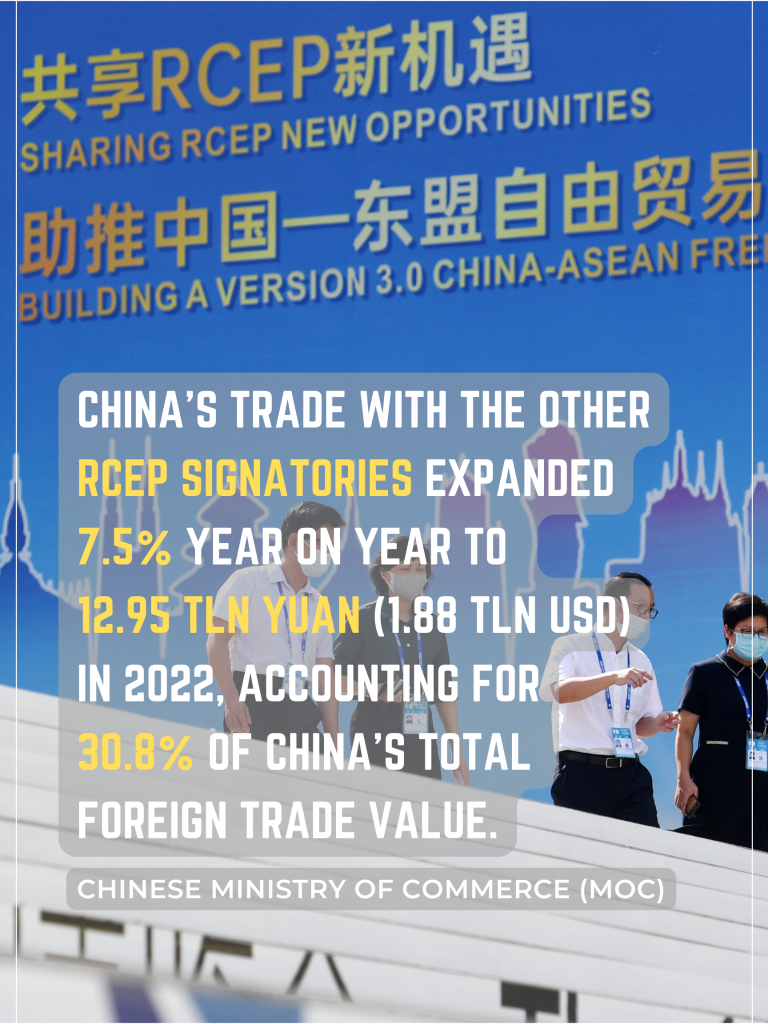
Amid declining global openness and rising trade costs, the RCEP helps promote opening-up and cooperation in the region and beyond, and contributes to world economic development, said Rebeca Grynspan, secretary-general of the United Nations Conference on Trade and Development.
The Belt and Road Initiative (BRI) proposed by Xi in 2013 has also played a large part in this aspect. It has become one of the most popular international platforms for global cooperation.
In the past decade, China has signed more than 200 BRI cooperation documents with 151 countries and 32 international organizations, according to official data.
Within the BRI's framework, ASEAN has Jakarta-Bandung High-Speed Railway in trial operation, the first of its kind in the region; Cambodia's first-ever Phnom Penh-Sihanoukville Expressway is officially opened to traffic; Croatia's Peljesac Bridge and Pakistan's Karot Hydropower project are put into operation. And all of these programs have been warmly received by the locals.
"If you look at the China's development model, we call it the proceeds of development that China is sharing with the rest of the world," said Cavince Adhere, a Kenya-based international relations scholar, noting that program like the BRI massively transforms developing places like Africa.
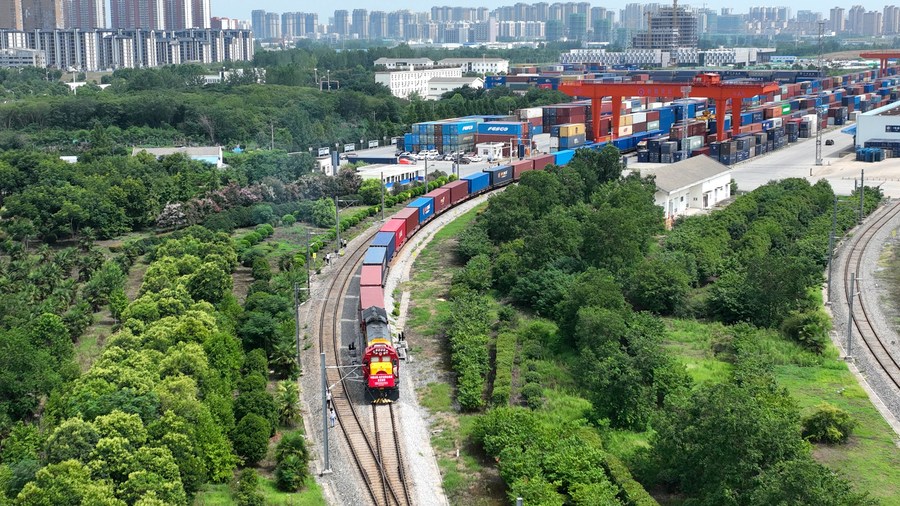
This aerial photo taken on July 29, 2022 shows a China-Europe freight train bound for Budapest, Hungary leaving a logistics base in Hefei, east China's Anhui Province. (Photo by Song Yanjun/Xinhua)
EASIER MARKET ACCESS
Under the policy of high-standard opening up, China has issued a series of measures to level the playing field, so that foreign companies can enjoy better business environment in the country.
Last year, China renewed the Catalogue of Industries Encouraged for Foreign Investment, which implemented provisional import tax rates lower than that of the most-favored nations for 1,020 commodities, and further reduced the most-favored-nation tariff rates for 62 IT products. Its overall tariff level will drop from 7.4 percent to 7.3 percent after the adjustment.
Meanwhile, the Central Economic Work Conference held at the end of 2022 reiterated the need to "make great efforts to attract and utilize foreign investment."
China is also actively seeking to continuously lower the threshold and reduce the costs and risks associated with foreign investment. Items on the negative lists nationwide and for pilot free trade zones, which took effect in January last year, have been cut to 31 and 27, down 6.1 percent and 10 percent, respectively.
Besides, China has established various platforms to reach overseas companies, such as the China International Import Expo (CIIE), the China International Consumer Products Expo, and the China International Fair for Trade in Services.

Data from the MOC showed that at the fifth edition of the CIIE, which attracted enterprises from 127 countries and regions, as well as 69 national governments and international organizations, tentative deals worth 73.52 billion dollars were reached for one-year purchases of goods and services, up 3.9 percent year on year. The event also offered more free booths for enterprises from the least developed countries.
"Five years ago, I announced the decision to hold the CIIE for the very purpose of expanding China's opening-up and turning our enormous market into enormous opportunities for the world. Today, the CIIE has become a showcase of China's new development paradigm, a platform for high-standard opening-up, and a public good for the whole world," Xi said at the opening ceremony of the fifth CIIE.
Hailing Xi's remarks, Craig Allen, president of the U.S.-China Business Council, said he heard China's heartening commitment to further reform and opening up.
Photos
Related Stories
- China's 2023 economic work priorities to facilitate high-quality development
- China to stimulate regional growth despite global uncertainties: Malaysian PM
- China's economic recovery renews impetus for global growth
- China pursues development for people's well-being
- China to steadfastly deepen reform, opening up
Copyright © 2023 People's Daily Online. All Rights Reserved.






